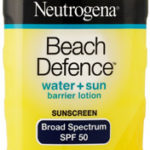Vitamin D is often referred to as the elixir of life, and for good reason. It gives us strong bones and muscles, and keeps our overall health in check. Without it, we’d probably be breaking bones left, right and centre, and also feel outrageously fatigued and rundown. But do you know what vitamin D actually is and could you have a vitamin D deficiency?
RELATED: Three ways to combat ingrown hairs
RELATED: What olive leaf extract can do for you
From the best vitamin D supplement to the vitamin D deficiency symptoms, Cassie Mendoza-Jones – naturopath, nutritionist, herbalist and founder of Elevate Vitality – knows, and she’s here to share her insights into this wondrous vitamin…
What is vitamin D?
“Vitamin D is an essential fat soluble vitamin, which means we are able to store it in the body.”
What are the health benefits of adequate vitamin D levels?
“Vitamin D is crucial to our health. Traditionally it has been associated with bone health, as it encourages the absorption of calcium and phosphorous. However, Vitamin D also enhances the immune system and helps maintain muscle strength, and new evidence shows vitamin D may be neuroprotective, too. This means it protects the brain and helps neurotransmitter (brain chemical) production, helping to slowdown the ageing process and improve cognition. It’s also vital in ensuring the pancreas secrets insulin properly, which helps regulate our blood sugar levels.”
How do you find out if you have a vitamin D deficiency?
“A simple blood test will determine any deficiencies. Lab reference ranges vary but ideally levels would be up around the 100 nmol/L.”
What causes a vitamin D deficiency?
“A deficiency in vitamin D may be caused by inadequate exposure to sunlight, inadequate dietary sources, or poor absorption, which is common in people with gastrointestinal issues like Crohn’s or Coeliac disease.”
What are the symptoms of a vitamin D deficiency?
“Some signs and symptoms include rickets and osteomalacia (both softening of the bones), impaired blood glucose/insulin secretion, chronic fatigue syndrome, anaemia, fibromyalgia, hypertension, preeclampsia and cancer of the breast, prostate, colon and skin, just to name a few. A deficiency also increases the risk of autoimmune diseases such as multiple sclerosis, inflammatory bowel disease and thyroid disorders.”
How can you treat a vitamin D deficiency?
“Between 80-100 per cent of our vitamin D needs can be met through adequate sun exposure, however there are many reasons why it’s not this simple. We don’t all produce the same amount of vitamin D in our skin, and our age, location, the time of day spent in sunlight and the body parts exposed to the sun all effect our intake. A good quality vitamin D3 supplement is a great way to treat a clinical deficiency.”
How can you stay sun smart while also maintaining your vitamin D levels?
“Alongside sunscreen, vitamin D helps protect your body against cancer, so they’re both important. But when it comes to your body synthesising vitamin D, short bursts of sunshine on bare skin are actually more effective than long periods. I suggest getting around 10-15 minutes of sunshine each day before applying sunscreen, as there’s a fine line between being in the sun with no cream to increase synthesis vitamin D and burning. You should definitely be wearing sunscreen for the majority of each day, and always get skin spots or moles checked out by a dermatologist.”
Do vitamin D supplements work?
“Supplements work really well. By taking a supplement and getting a daily dose of sunshine, you’ll raise your levels within just a few months. Without a supplement, it could take many months or even a year to raise your level simply through sunshine and foods, depending on where you live and how well your body produces and stores vitamin D. If you’re extremely deficient, a supplement is crucial.”
Other than the sun, what are other sources of vitamin D?
“Small amounts of vitamin D3 – the most important dietary form – are found in animal products like fatty fish, such as herring, salmon, tuna and sardines, beef and liver, organic butter and eggs. Cod liver oil is also a great source. Vitamin D2 is only found in mushrooms.”
Can adequate vitamin D levels help combat fatigue?
“Yes, absolutely. In fact, it’s estimated that 40-60 per cent of people with fibromyalgia (muscle pain, fatigue, brain fog, aches and pains) are actually suffering from a vitamin D deficiency.”
Did you know vitamin D was vital for optimal health? Do you suffer from a deficiency? How do you help maintain your vitamin D levels?






I have no idea how I have optimal level of vitD as I avoid sun because of melasma completely for years. And I eat whole food plant based diet, no processed food ever and no supplements. Well, everything is optimal and I’m happy =D
I can’t stand being in the sun. My doctor diagnosed me with a Vitamin D deficiency, so I take supplements to keep me within the healthy range.
I take a Vit D supplement, maintaining levels of this vitamin is important to me
The necessary amount of vitamin D can be achieved by exposing your arms during the day to sunlight